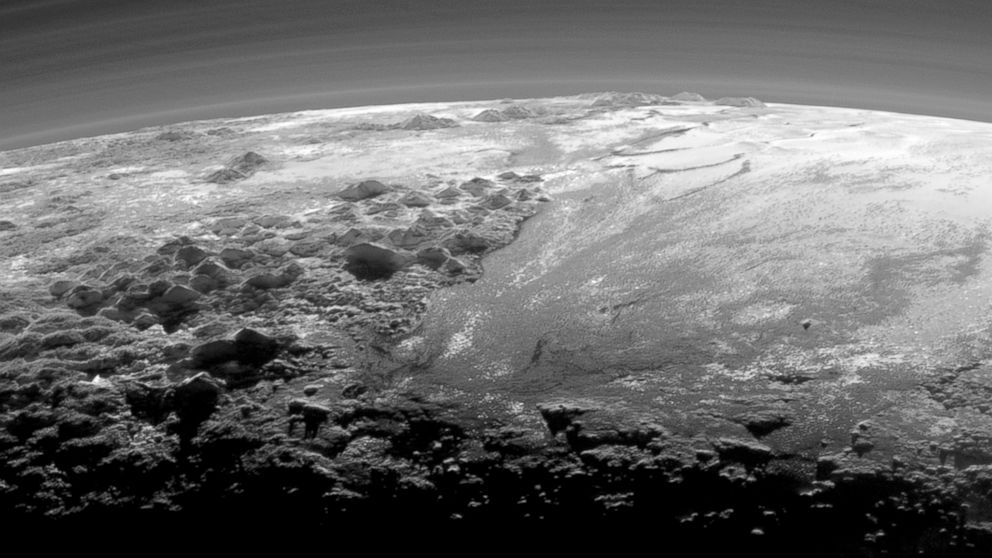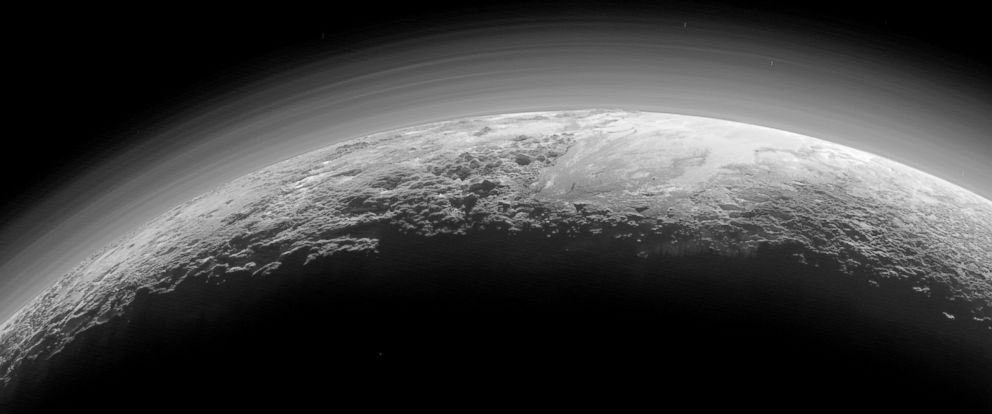Pluto's Majestic Mountains and Atmospheric Haze Revealed in New Photo From New Horizons
NASA has released new stunning images of the dwarf planet.

— -- Behold Pluto in all of its glory.
NASA today released a panoramic image, taken from the New Horizons flyby, showing the dwarf planet's mountains and plains in stunning new detail with the sun back-lighting the features of the icy world. The photo also shows a haze in Pluto's extended nitrogen-rich atmosphere.
"This image really makes you feel you are there, at Pluto, surveying the landscape for yourself," Alan Stern, New Horizons' principal investigator, said in a statement. "But this image is also a scientific bonanza, revealing new details about Pluto’s atmosphere, mountains, glaciers and plains."
NASA said the image shows evidence Pluto may have a hydrological cycle -- meaning evaporation, condensation and precipitation. Unlike the cycle on Earth, the space agency's researchers said it appears Pluto's cycle would involve nitrogen instead of water ice.

While today may be the first time the world gets a look at the panoramic image, it was actually taken on July 14 and was downlinked to Earth nearly two months later. New Horizons is currently in the process of a massive data download, sending its trove of photos and science back to Earth.
Traveling at the speed of light, signals take 4.5 hours to travel 3 billion miles to reach Earth, meaning the spacecraft has an enormous undertaking ahead of it. With data downloading at a rate of approximately 1 to 4 kilobits per second, it's expected the entire bounty of science from the encounter will take one year to be transmitted back to Earth.



